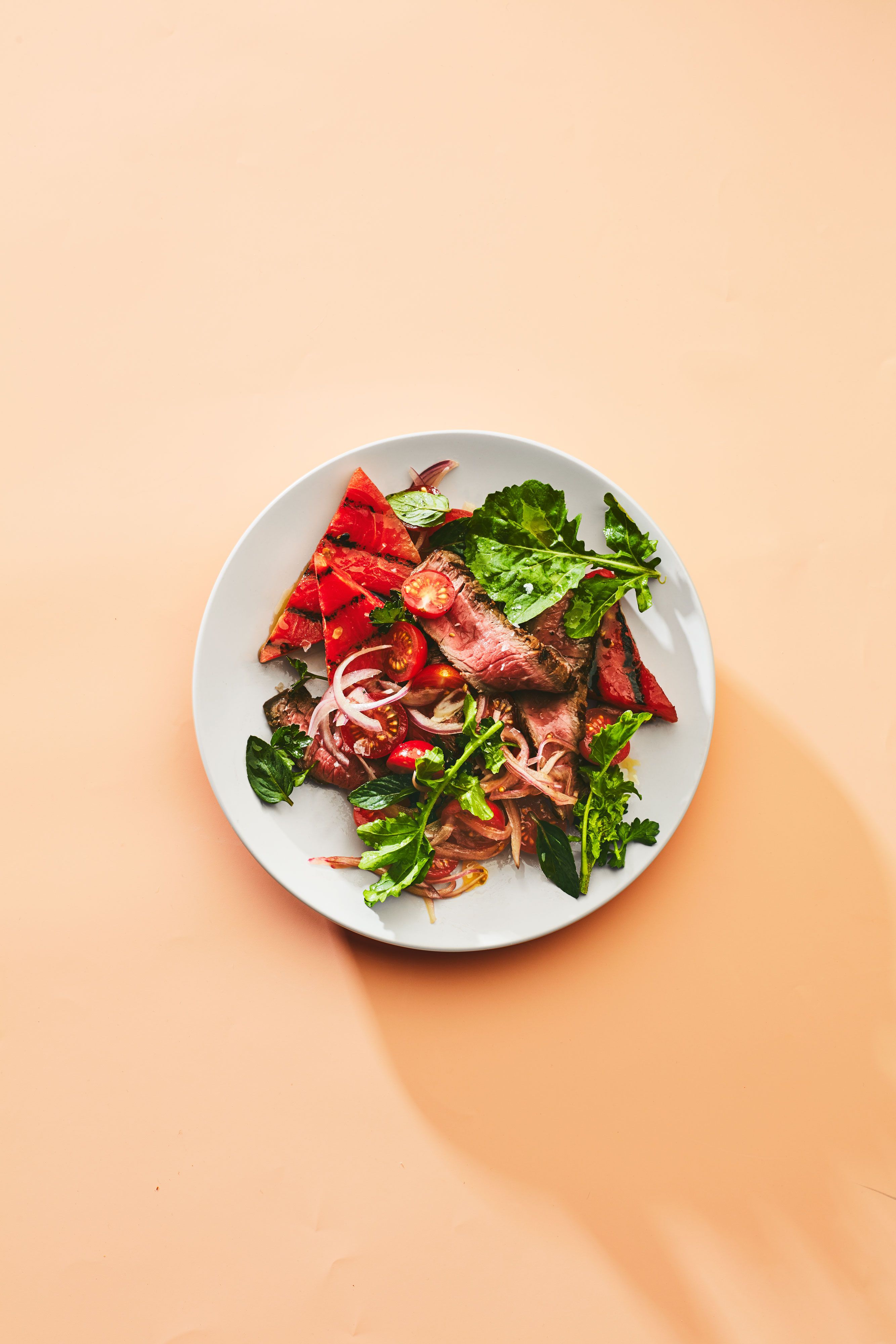It’s no secret that losing weight isn’t always the easiest process in the world. And with new methods, diets, and workouts claiming to be the best, it can be difficult to suss out the good, sustainable plans from the fads. One of the more recent programs to catch some buzz is the GOLO diet, which claims there could be a hormonal issue messing with your ability to lose weight.
The GOLO diet zeros in on the hormone insulin as being an issue for people who are doing everything right but still can’t seem to lose weight. Per the GOLO program’s website, out-of-whack insulin levels can interfere with weight loss even if you’re eating healthy foods and exercising regularly because it “causes fat storage and slows your metabolism.”
That’s why the GOLO diet offers a plan that promises to help you lose weight by “balancing hormones that affect weight, helping to regulate blood sugar levels, supporting proper glucose metabolism and managing fatigue, while allowing your body to become naturally efficient at releasing stored fat versus storing it,” according to the website.
But is the GOLO diet actually effect for weight loss, and more importantly, is it safe? Here’s what you need to know—with the help of nutritionist Jessica Crandall, RDN, and weight-loss expert Peter LePort, MD—about the GOLO diet and program before jumping in.
What exactly does the GOLO diet entail?
According to GOLO’s site, the diet involves eating “fresh meats, fruits, vegetables, and healthy fats—and of course fresh breads, pasta, and butter.” It seems that no foods are considered off-limits on the diet, which is a positive thing, according to Crandall, who is also a certified diabetes educator and a spokesperson for the Academy of Nutrition and Dietetics.
You need to purchase the diet’s booklets and a 30-, 60-, or 90-day supply of its Release weight-loss supplement (ranging from $40 to $90) to get information about portion sizes or calorie intake. So you do need to pay for the program in order to get the full details, she notes.
What do the GOLO diet Release supplements do?
The GOLO diet relies on the program’s Release supplement, which was “designed with plant-based ingredients,” according to the company website. You take the supp with every meal, or possibly less often depending on how much weight you have to lose.
The website lists all of the ingredients in the supplement, which include minerals like zinc, chromium, and magnesium; and plant extracts like Banaba leaf extract and rhodiola rosea), and cites that “over 30 studies on the Release ingredients showing both the safety and efficacy of the GOLO Release dietary supplement.”
In one 2018, 13-week randomized double-blind placebo-controlled study that’s mentioned on the website (but not linked to), overweight people who took Release lost significantly more weight, inches around their waists, and lowered their health risk markers more than folks who took a placebo. GOLO, however, does not provide further information on this study or the other 30 studies it has conducted.
According to the website, the natural ingredients in the supplement “work together to address the underlying cause of weight gain and helps to repair your metabolism.” The site also states that the supplement does not interact with other medications and does not cause a jittery feeling (something that many so-called weight-loss pills, especially those with caffeine in them, do cause).
The issue? You can’t completely guarantee that a mystery supplement will sit well with you without actually trying it, and Crandall and Dr. LePort agree that it’d be tough to know exactly how Release works exactly to improve insulin resistance and metabolic issues without more clear information. Some of the ingredients could also cause stomach upset or nausea, which is something to consider.
Another thing worth noting about supplements in general: The Food and Drug Administration (FDA) doesn’t intensely regulate them, says Crandall.
Can you lose weight on the GOLO diet?
It’s unclear. As mentioned, GOLO cites multiple studies on its website as proof that the diet program really works—but the studies were paid for by the company and weren’t found in the peer-reviewed National Library of Medicine database, Crandall says.
It’s important for weight loss to eat a healthy, balanced diet and monitor your caloric intake, and the GOLO diet seems to suggest these key weight-loss principles. But it’s also important to be cautious about GOLO’s claims regarding insulin, says Dr. LePort, who is a bariatric surgeon and the medical director at MemorialCare Surgical Weight Loss Center.
Here’s the deal: When your body releases insulin, you start to feel hungry, says Dr. LePort. GOLO’s Release supplement, however, aims to keep insulin levels from rising and essentially trick you into eating less frequently. What Dr. LePort didn’t get from the site was how these plant extracts and minerals actually balance hormones and help you lose weight.
What are the cons of the GOLO diet?
WH advisory board member Amanda Baker Lemein, RD, says there are some cons to consider. While some people think a pro to the diet is that it doesn’t seem to be a diet in the traditional sense, but rather a supplement regimen, Lemein says this is actually a hurdle.
As mentioned, supplements are not a heavily regulated industry, Lemein points out—which means you need to proceed with great caution and research before using them. What’s more, the plan may not be sustainable, she says. “As a nutrition expert who has counseled many weight-loss clients over the years, this [diet plan] does not evaluate any of the behavioral issues that need to be resolved,” Lemein says.
Instead, she recommends focusing on making long-lasting lifestyle changes that include healthy, balanced meals (which may look different for everyone) and the ability to allow all foods to fit in moderation.
Lemein also points out that you wouldn’t know much about your hormones unless you worked with your doctor to get that information. “It is simply untrue to claim that everyone is insulin resistant,” Lemein says. If someone has concerns about having a potential hormonal imbalance, they should consult with their physician, who can recommend proper therapies for their individual situation, Lemein suggests.
What do the reviews say?
Out of the 78 reviews available on Amazon, many people pointed out that they were motivated by all of the materials and resources that you get when you pay for the GOLO diet program and supplements. “I’ve only been using this item for a few weeks, and I’m slowly beginning to change my eating habits and use the diet plan materials that came with the supplements,” one person explained. “I seem to be able to tolerate this product, have not had any side effects, and have noticed a slight weight loss along with a decrease in appetite.”
Another GOLO dieter gave this detailed positive review but was super honest about the fact that you have to really commit to a healthy lifestyle: “I have been taking this product for 9 months … The product works well with healthy diet and exercise. I cook everything at home, follow the portion of protein intake limit and lots of vegetables, drink a lot of water to keep hydrate … there is no one-time-fix product which promises to keep your weight loss forever. The game is yourself that depends how do you want to play it. Highly recommend this product for whom would want to live in a healthy life and be happy to enjoy it.
But some people aren’t so sure how necessary the Release supplements are when the eating advice in itself seems to be effective on its own. One person wrote, “The diet would work even without this supplement … Now I’ll just follow a low-carb diabetic diet. It does the same thing.”
Side effects of the supplements seem to be another issue for some people who have tried the GOLO diet plan. “After about 30 days the pills started to make me nauseated. [I] stopped for a few days and nausea went away. Started again and nausea came back,” another consumer commented. “I’ll probably stick to a revised edition of the eating plan, that seems to make some sense, but I will cut some of the carbs.”
Another critic warned, “Had to stop taking due to the absolutely horrific side effects. Terrible stomach cramps, gas, bloating and did not help with weight loss or curbing appetite. DO NOT BUY.”
So should you try the GOLO diet or program?
Dr. LePort doesn’t see anything harmful about the balanced meals that incorporate healthy servings of carbs, proteins, and fats, but, again, the overview of what GOLO meals are made up of is limited unless you pay for the program assets. And, as for the supplements, he can’t speak to their safety or benefits.
If you want to lose weight, your best bet is to eat whole foods and maintain a caloric deficit that is appropriate for your age and weight, says Dr. LePort.
The bottom line: Some of the GOLO diet principles are straightforward weight-loss methods, such as eating whole foods and aiming for a caloric deficit appropriate for your age and weight. But there’s not a ton of data on the GOLO diet or the supplements it uses, so proceed with caution.
Source: Read Full Article





